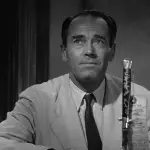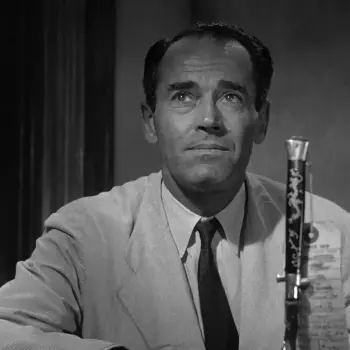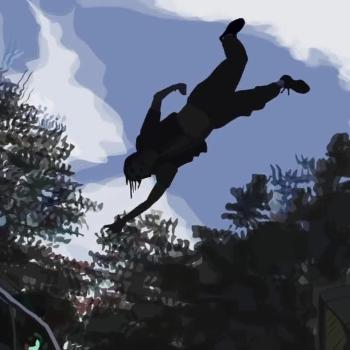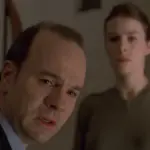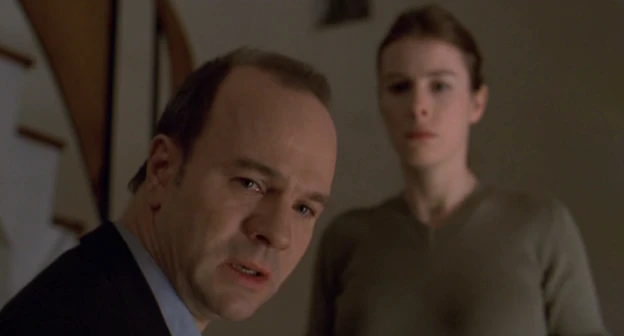
I wrote a little bit ago about Akira Kurosawa’s Ikiru and how it deconstructs the way that the workplace deteriorates the human soul. I stand by my observations there about both the genius of the film and the necessity all people have to try to cultivate their sense of happiness and purpose independent of what the workforce tells you is important. (If we lived in a more perfect world, all people would have equal opportunity to do this.) But there is also media that explores what it looks like when a person overcorrects in this regard–when they choose to neglect their obligation to their family and their community.
Laurent Cantet’s 2001 film, Time Out, sees Vincent, a man who has been out of work for three months, but he has not told his friends or his family. He spends the workday driving around the country at his leisure. We find out that Vincent is in fact actively swatting away opportunities for new employment, revealing that Vincent is in fact choosing to remain in this state of irresponsibility.
The further out he gets, the harder he must work to sustain this lie. By the time we enter the story, he is posing as an investment agent and persuading his friends to loan him money under false pretenses, rationalizing he will pay them back in full “when things are different.” Moreover, Vincent is cursed with the ability to lie convincingly on the spot (the character is further cursed by such a charismatic performance from actor Aurélien Recoing), and this almost makes you hate the guy for how he toys with the people who are closest to him.
But I think an essential part of this model is that we have to sympathize with him just a little bit. We have to imagine that, given the right circumstances, we might ourselves be willing to comply with our own self-deceptions. (Perhaps some of us already are …)

There’s a telling scene about midway through where Vincent gives a veiled confession to his wife about feeling overwhelmed at how drowning in the corporate current leaves him feeling erased. It’s further implied that a part of the reason why Vincent finds it so easy to lie in this new sphere is that he has effectively trained himself to be dishonest with himself in how he feels as a cog in the machine. These are valid fears, and I think it offers an insightful window into the demands of work culture on men especially, but Vincent does not have the vocabulary or tools to describe or confront his anxieties. And so, he lets himself backslide into this state of stagnation. He is obviously dissociating and betraying the trust of a lot of people, but the film does allow the audience to understand why a person might fall for his own lies in the way Vincent so obviously has.
There’s obviously a lie on display in the fabrication Vincent is spinning for his friends and family, but more to the point, there are the lies Vincent is telling himself, starting with the lie that he is content in this lifestyle. Part of his aimless routine has him visit large corporate buildings where important people get to do important things, and he gets to imagine for a moment that he shares in their importance. All the while, we are meant to believe that Vincent genuinely loves his family, even as he is supremely violating their trust, but his ability to dissociate has mutated into something formidable.
Something Vincent is gradually forced to reckon with is how his little charade doesn’t come at no harm to anyone else. Again, he has to deceive his friends into giving him money in order to maintain his illusion. But as he continues to drift in limbo, he also attracts other bottom-feeders who threaten to drag him down even further–like a “business associate” who catches onto his fake venture and wants in on the gig, spurring him to take bigger bites in the money he “borrows.” Even though Vincent did not enter into this arrangement intending to be complicit in something so seedy, this kind of thing is inevitable when you detach yourself from what you are supposed to be doing.
What Vincent really needs is not unlimited vacation time, nor more tools to build up his deception, but to confront the fears that are keeping him from reentering the arena. His need to be honest with his circle runs concurrent with his need to be honest with himself.



